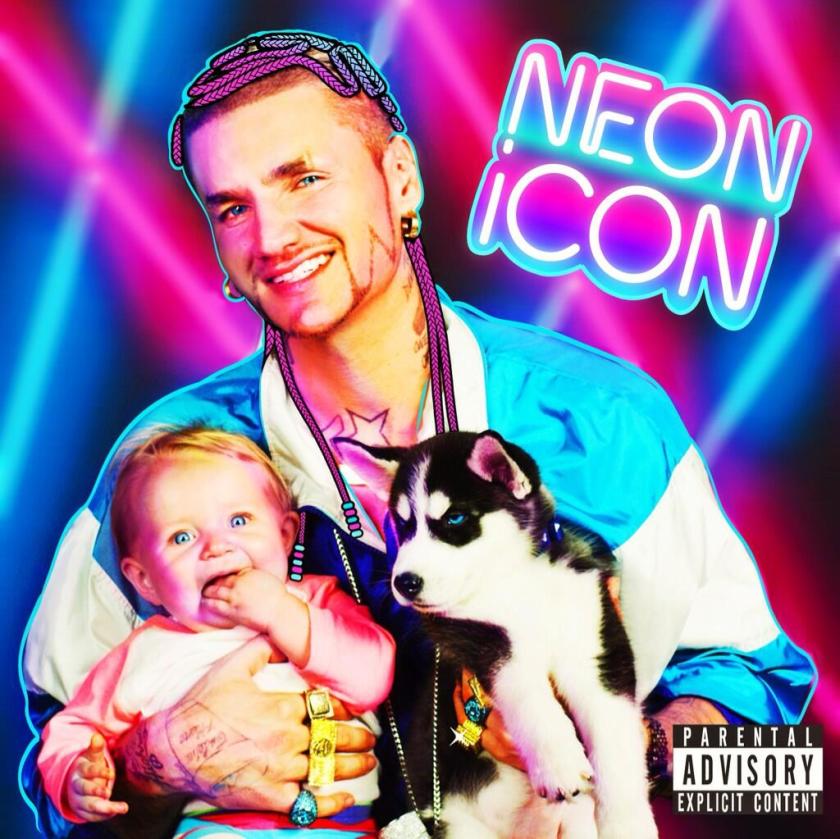Over the last few years, Riff Raff's rise – from ambitious, driven Houston rap scenester to reality-show opportunist to the alleged inspiration for James Franco's sleazily OTT white rapper in Harmony Korine's Spring Breakers – has been fascinating to observe. He's carefully parlayed low-level internet celebrity into his current, almost Gatsby-esque status as a self-actualised pop-culture avatar-cum-living meme, only the kind that steps out with the likes of Katy Perry. It's an impressive feat, especially when done without the aid of a conventional hit record. With this album, his first for Diplo's Mad Decent label, the challenge is to surmount that final obstacle, and he just about pulls it off.
Neon Icon is peppered with stylistic twists and turns, all filtered via its creator's surrealist take on rap's customary self-aggrandisement, although it's less convincing when it attempts to cover multiple bases. That said, the brash sports-rock of "Kokayne", the country-tinged "Time" and the sugary R&B/pop-rap of "Maybe You Love Me" may be the very things to draw in casual listeners unconcerned with the accusations of buffoonery or cultural appropriation hurled at Riff Raff by hip-hop's self-appointed gatekeepers.
When it sticks to regular rap territory, it's actually a lot of fun. Album opener "Introducing the Icon" is half party-starter, half light-hearted statement of intent (“I'm the white Gucci Mane with a spray-tan”), striking a Nineties Ice Cube pose and dialling back the militant bluster, while Lava Glaciers leans heavily upon samples of Seventies prog-rockers Nektar. DJ Mustard supplies the hot-in-the-streets “ratchet” beat for "How to Be the Man", and there's even the odd clever audio gag, like the gurgling dolphin call that acts as the hook for Aquaberry Dolphin.
Overall, Neon Icon is a qualified success, even if it may not be enough to make Riff Raff an international household name just yet. Rap traditionalists yearning for Public Enemy to rekindle their former glories and save hip-hop will probably find little to enjoy here. But as a snapshot of the way in which rap's reach and influence has extended into the heart of 21st-century pop culture, it'll do fine for now.














Add comment